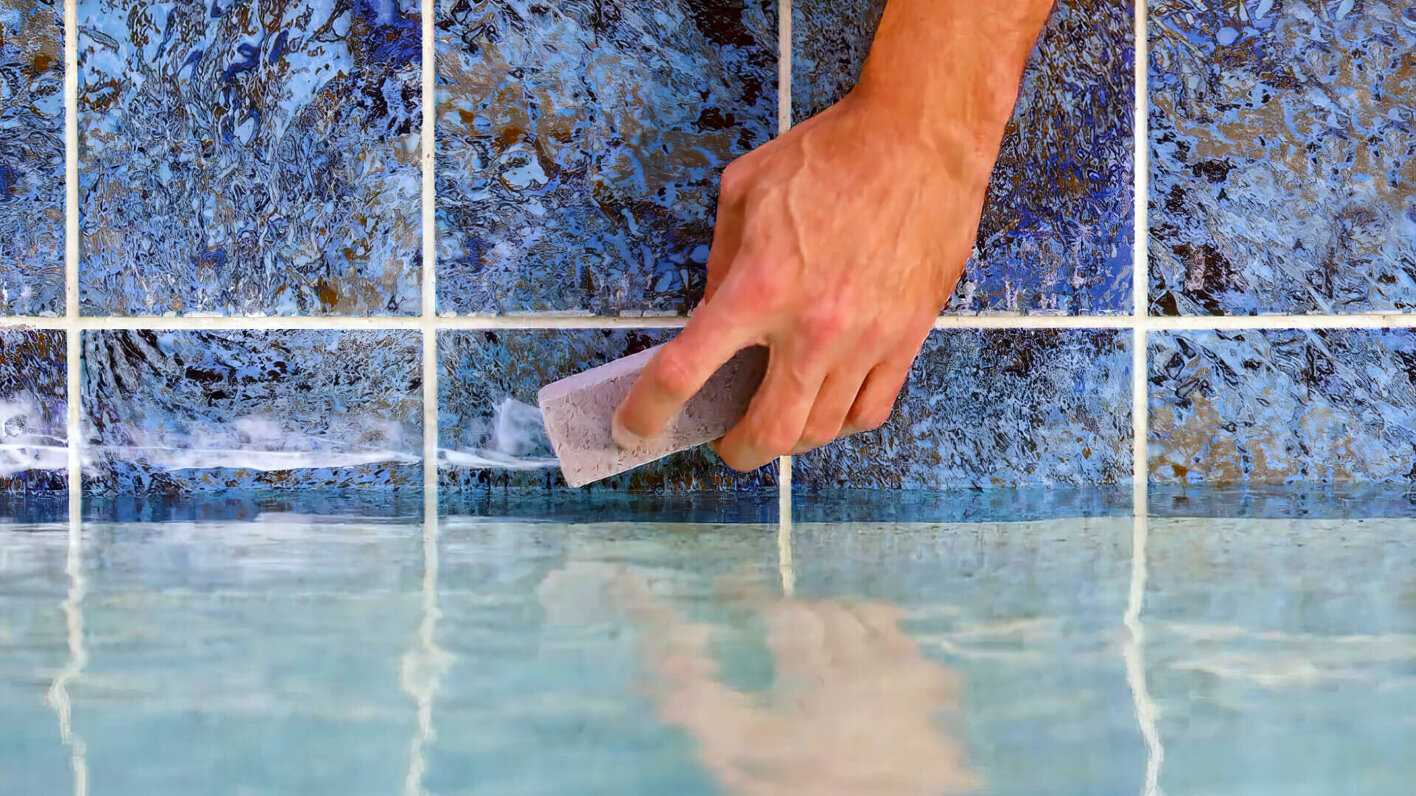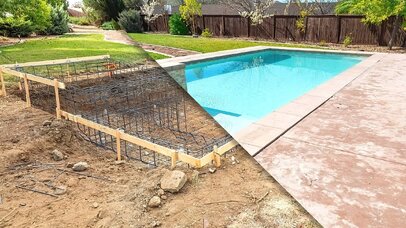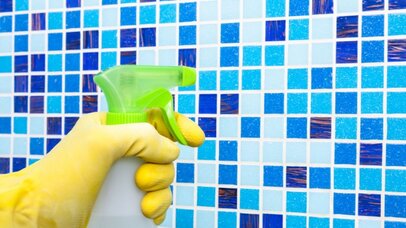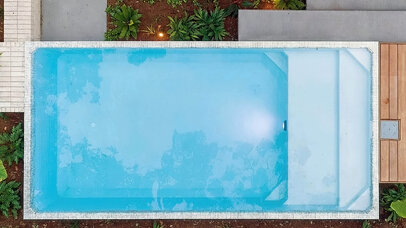It’s common to notice calcium build-up on the pool surface if you don’t clean the tiles and change the pool water regularly.
Calcium deposits can slowly corrode all metal fittings and leave stains on the pool walls and tiles. The calcium scale on the pool surfaces will cause your pool to lose its aesthetic appeal.
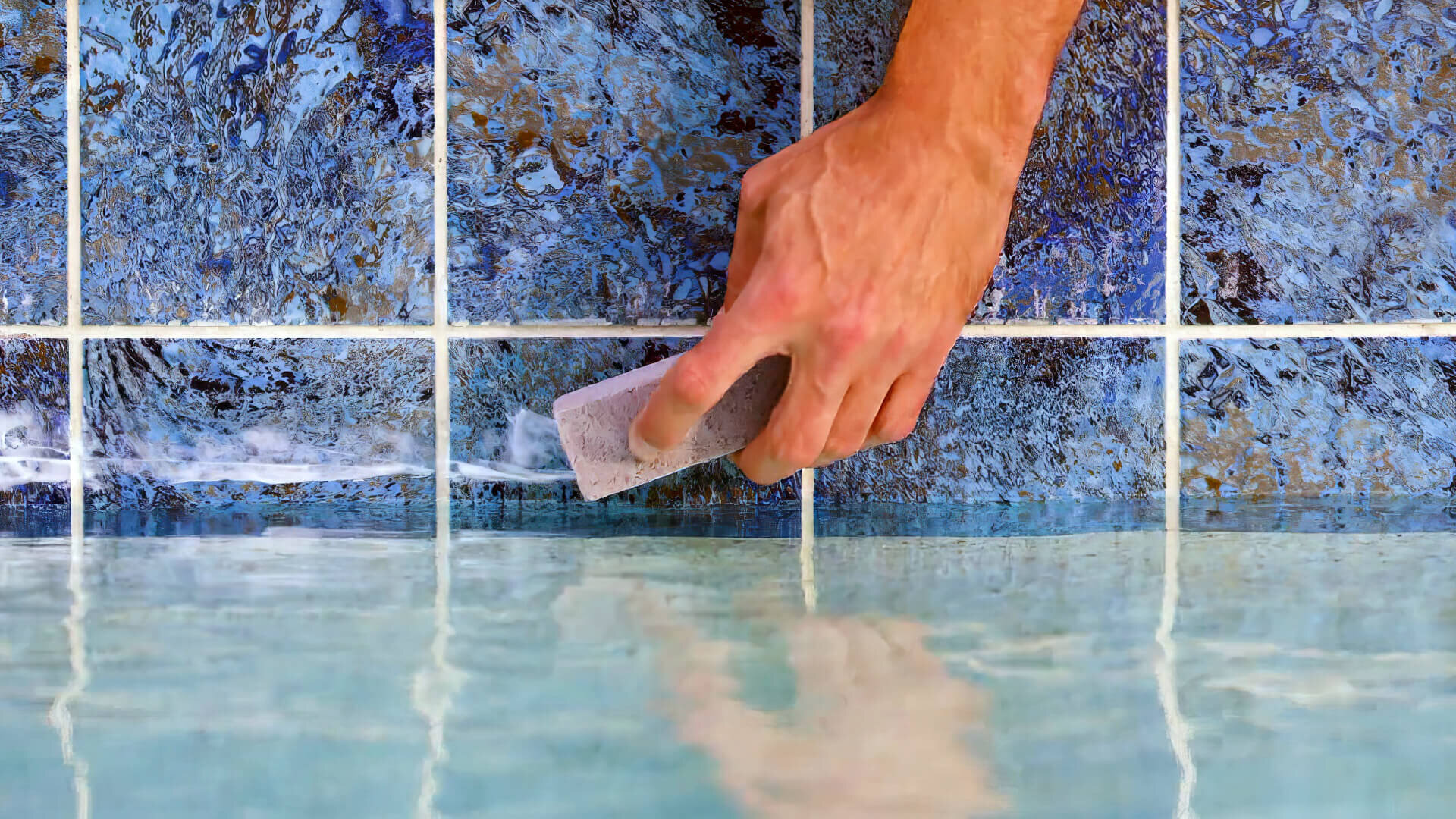
But you needn’t worry. This guide contains everything you need to know to prevent calcium buildup in your pool.
What Are The Causes Of Calcium Deposits?
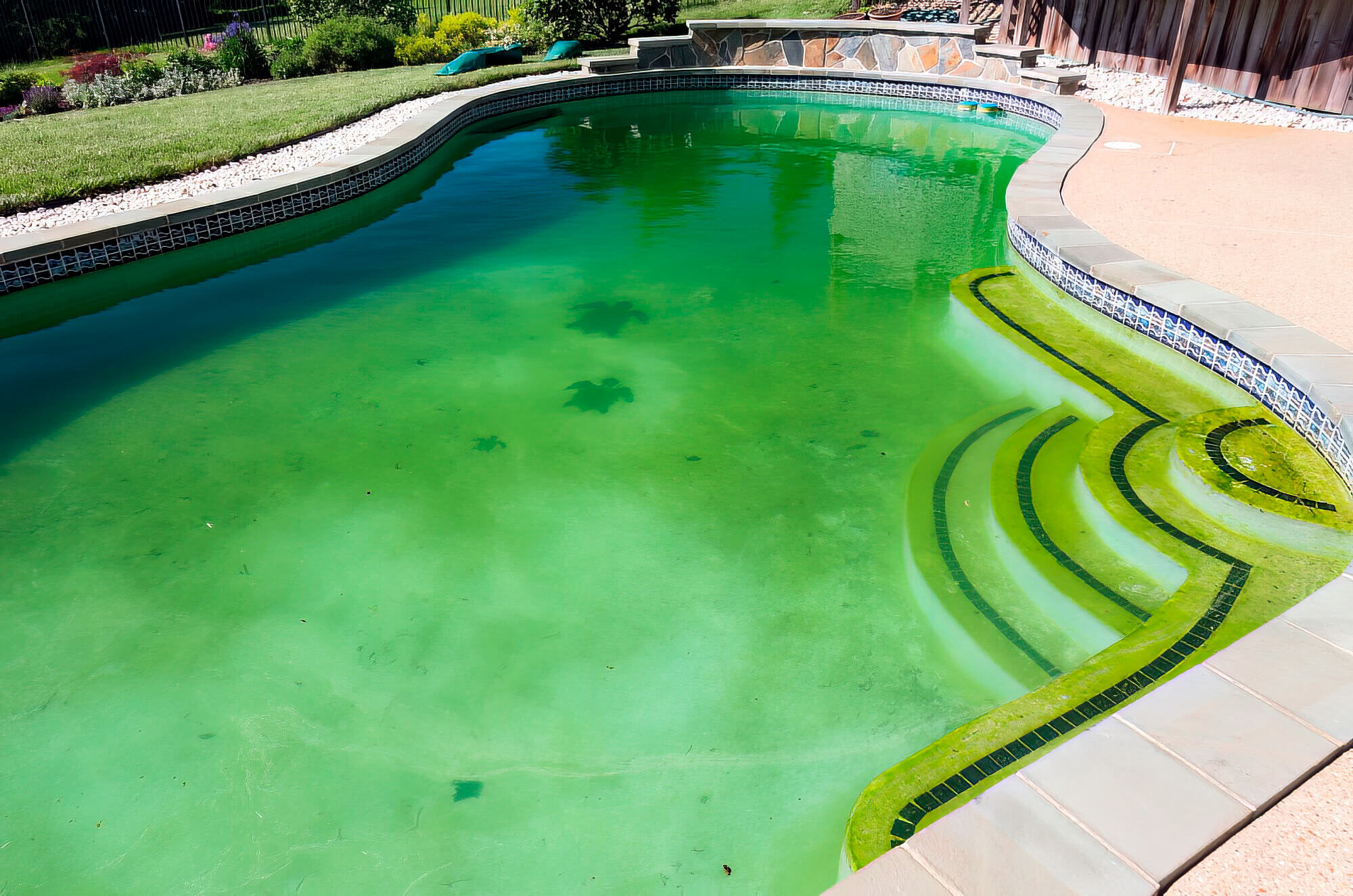
Excess calcium build-up in the pool is directly related to using many chemicals for the pool cleaning process. No wonder most pool owners usually stress a lot about maintaining a balance of chemicals to keep the pool hygienic yet free from damage.
If the pool’s pH levels are off or the total alkalinity is too high or low, you’ll probably fight algae, murky water, and calcium scaling. While chemical imbalance is one of the main causes of calcium deposits, several other factors are essential in causing calcium buildups.
For instance, let’s talk about fluctuations in temperature. If the pool water temperature is too high, the water will evaporate, leaving a crusty calcium scale on the pool surface.
There are two types of calcium scales: calcium silicate and calcium carbonate. Calcium carbonate is flaky and white and relatively easy to clean. On the other hand, calcium silicate is grey, and removing calcium silicate scaling is quite tricky.
You can pour a few drops of muriatic acid on the deposits to determine the type of calcium scaling. Muriatic acid will cause calcium carbonate scales to produce foam, but calcium silicate won’t.
How To Stop Calcium Build-Up in Swimming Pools?
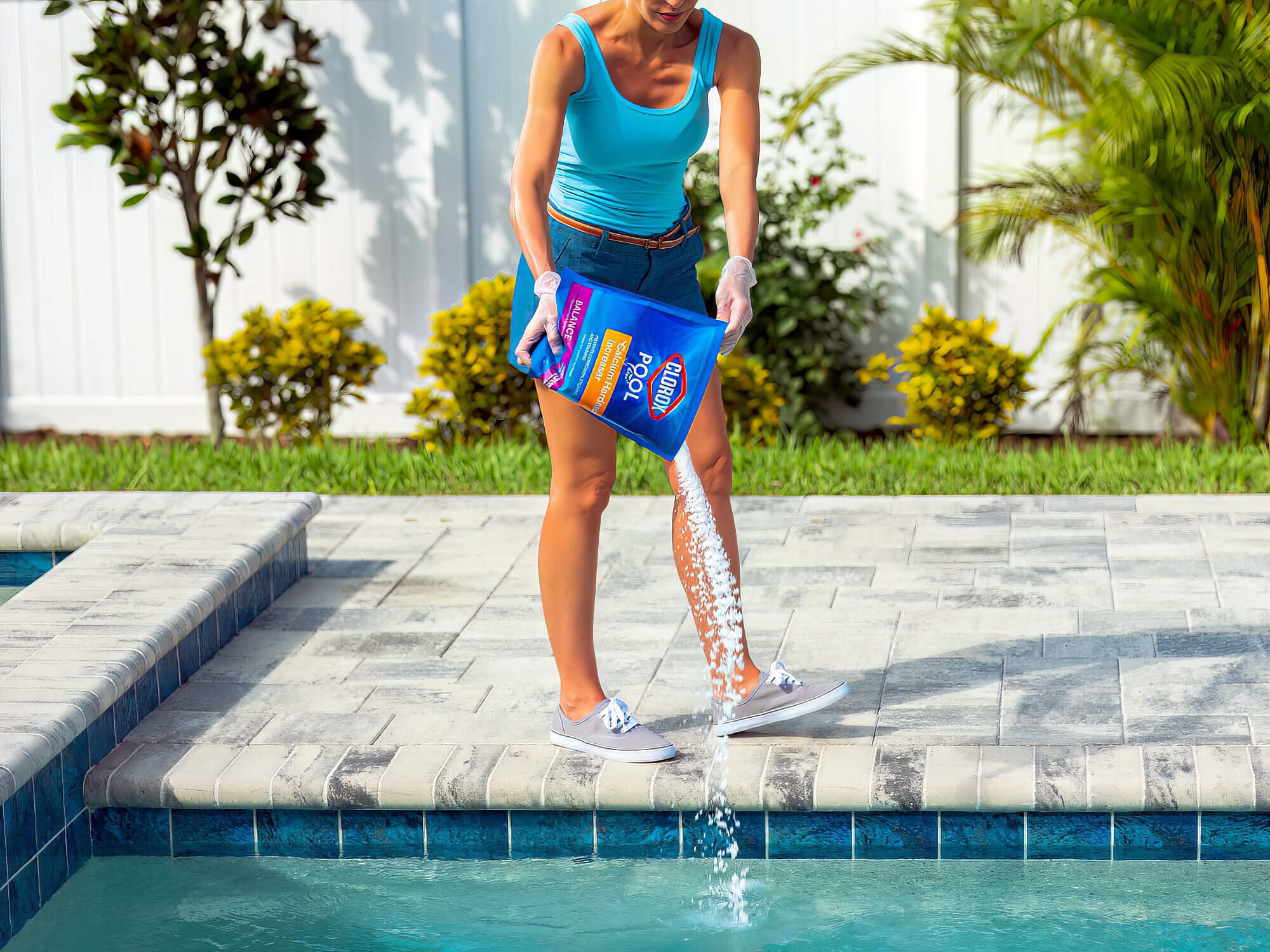
The answer to this question is maintaining a chemical balance — meaning the calcium content in the pool should neither be too much nor too little. If the calcium levels are high in pool water, it might lead to cloudy water and calcium scaling.
At the same time, even low calcium levels in the pool are a problem. They mess with the pool’s alkalinity level and corrode the metal fittings, which must be replaced. This is especially common in vinyl and fibreglass pools.
Furthermore, the pool’s pH level should always be between 7.2 and 7.6. The alkalinity level should be 80 to 120 ppm.
As you know, water evaporation caused due to high temperatures is a significant cause of calcium scaling. So, installing an auto pool cover to reduce evaporation is a good idea. Even reverse osmosis treatment can help prevent calcium build-up on pool surfaces.
Of course, regular cleaning and maintenance are equally crucial in preventing calcium scales from forming on the floors and tiles of the pool.
What Should The Ideal Level Of Calcium Be In The Pool Water?

Like water’s pH and alkalinity levels, you can easily maintain the calcium levels in pool water. The calcium content in the pool water should be 100-400 parts per million (ppm).
If the calcium hardness is high, pump out some pool water and replace it with tap water. If the hardness level is too low, add a bit of calcium chloride to increase the calcium content immediately.
How To Remove Calcium Carbonate Scaling And Calcium Silicate Scaling?

If there’s too much calcium build-up in the pool, you might want to add some sequestering agent. It acts as a chemical agent to remove water’s highly contaminating chemicals and calcium content. In addition, it removes all the major stains from the pool’s surface.
Cleaning pool tile calcium deposits does not necessitate using several instruments or equipment. You can use a pumice stone, stain eraser or scale remover to remove calcium carbonate deposits.
However, the pumice stone should be moist before usage and mainly used to remove calcium silicate in concrete pools. It’s also important to note that calcium silicate takes longer to remove and will require a lot of elbow grease from your end.
If you use a stain remover to remove calcium scale deposits, apply the chemical to the stained surface.
Calling for professional assistance is better if you own a vinyl or fibreglass pool. Our team at The Pool Co. specialises in handling all aspects of a pool, be it construction, council approvals, or cleaning. We will ensure the safe elimination of calcium build-up from your pool surface and restore the pool to its pristine condition.
Preventing Calcium Buildup in Your Pool
In conclusion, managing calcium buildup in your pool is essential for maintaining a pristine and enjoyable swimming environment. Regular maintenance checks are crucial to prevent the formation of **calcium spots** that can mar the appearance of your pool. The right cleaning tools and techniques can help you effectively remove calcium buildup.
Always monitor and adjust the pool water’s pH and alkalinity levels to discourage calcium-rich water from damaging your pool’s aesthetic and functionality. Instead of using calcium-containing shocks, opt for a clarifier to enhance your filtration system’s ability to clear out calcium deposits. These practices ensure calcium scaling does not disrupt your summer fun.
Remember, the upkeep of your pool might seem daunting, but with consistent care, you can look forward to a relaxing and carefree summer in the water. Don’t let maintenance challenges prevent you from making the most out of your investment.
The Pool Co is your go-to solution for expert advice and top-notch pool construction and maintenance service. We are the number one company in the industry, ready to help you achieve the perfect pool experience. Call us today for a free estimate, and let us help you keep your pool in excellent condition for endless summer enjoyment.
